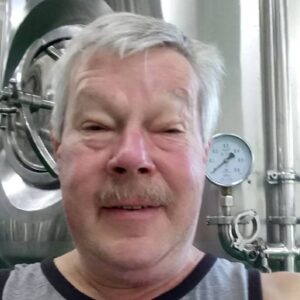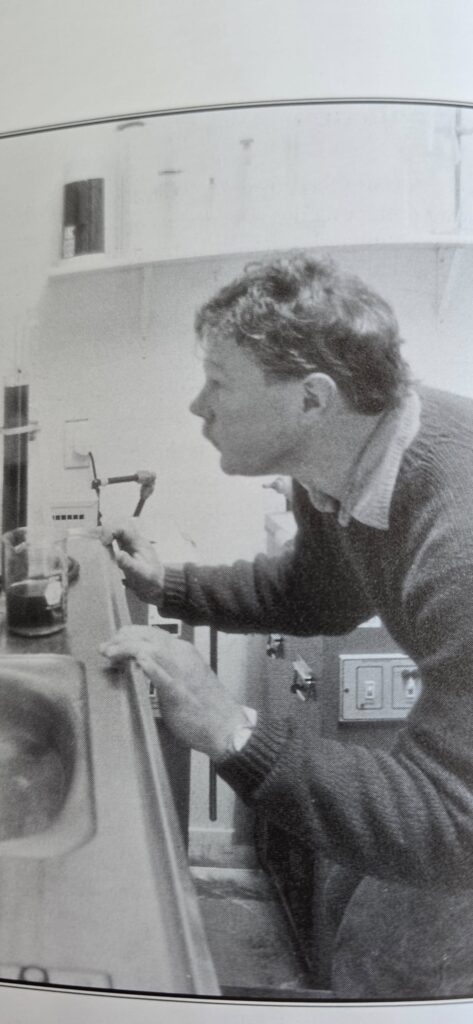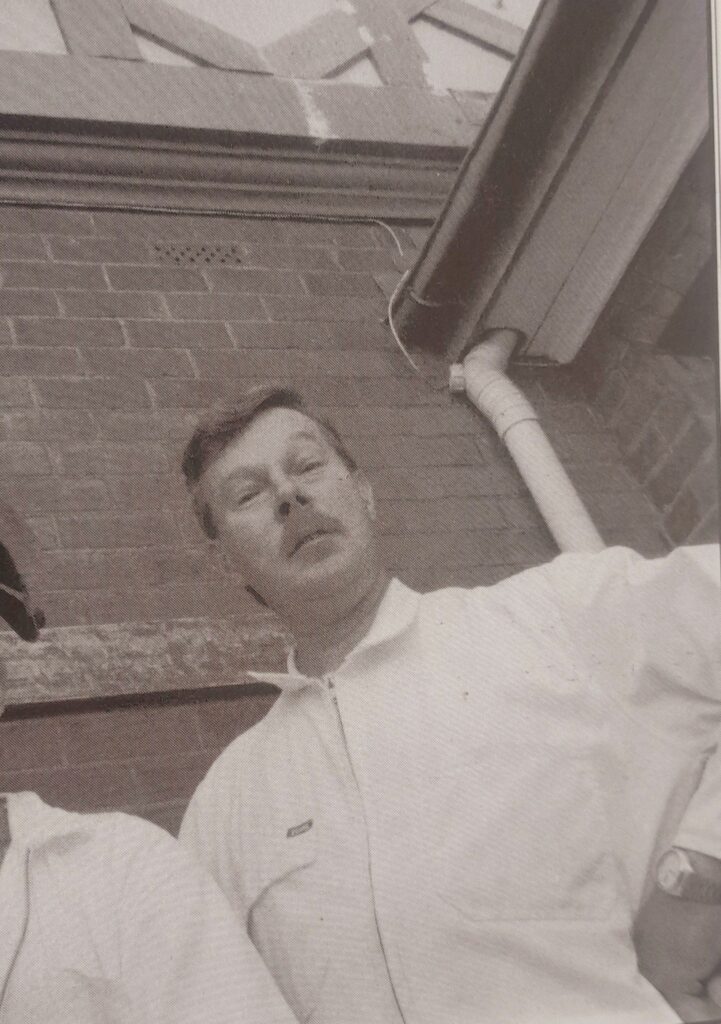Before the internet, before Google, YouTube and AI, and before craft beer became a global movement, there was Richard “Paul” Cooper — or as everyone in the brewing world knew him, “Coops”. A scientist, engineer, brewer, and all-round innovator, Coops was among the first to prove that passion and ingenuity could transform beer in New Zealand from a commodity into a craft.
His story begins in the early 1980s, when New Zealand’s beer scene was still dominated by a few large breweries turning out pale, uniform lagers. For most, that was simply “beer.” But Coops saw beyond the bland. He recognised that brewing was both science and art — and that with the right mix of knowledge and creativity, beer could express flavour, place, and identity.
It’s hard to overstate how primitive the brewing world was back then. Even before “craft beer” was a thing, the odd home brewer might give full-mash brewing a go — but there were no specialty malts, no liquid yeasts, and only a handful of common hop varieties available. It was the dark ages of brewing: no online suppliers, no Ali Express, and certainly no “cheap and cheerful” kits. Conical fermenters, mills, and temperature-controlled systems were out of reach for the budget-minded. Those were the days of buckets, backyard boilers, and a fair bit of Morris-dance folk improvisation — and right there in the middle of it all, quietly pushing the boundaries, was Coops.

His early involvement at Mac’s Brewery in Nelson placed him right at the start of the country’s brewing revolution. Mac’s, founded by Terry McCashin, was the first serious challenger to the big players, and Coops was there in the background, helping to shape processes and push boundaries. His scientific curiosity and engineering mind made him invaluable — someone who not only understood how brewing worked, but how it could work better.
And Coops was there as an industrial chemist — his “day gig,” so to speak — always close to those in the game. That professional grounding in chemistry gave him an edge few others had. He understood not just the art of brewing, but the molecular science behind it: the reactions, the fermentations, the balance. It was a blend of blue-collar practicality and white-lab-coat precision that defined his approach to beer from the very beginning.
Over the years, Coops became involved with a roll-call of now-legendary early brewery ventures — more names than most of us can remember: Dux De Lux, Parrot and Jigger, McNeills, The Milkshed, Harrington’s (both Christchurch and Nelson), Wigram, and newer outfits like Renegade. Each carried a spark of his influence — whether in the brewhouse design, the yeast management, or simply the attitude toward experimentation.
The things Coops knew always amazed people. You just needed to ask the right question — and be prepared to listen to the answer. That wasn’t always easy; Coops thought in layers, and his explanations could take you deep into chemistry, engineering, and philosophy before looping back to beer. But if you truly listened, you walked away wiser. He had that gift — not to hand you the solution, but to guide you toward understanding it yourself.
Ask anyone who knew the Coops during those formative years, and you’ll hear stories that border on legend. There was the time he returned from a visit to England carrying a precious yeast strain, nurtured and protected all the way home — determined to bring new character and complexity to New Zealand beer. In those days, cultivating your own yeast culture was something only big breweries with full laboratories could do, yet Coops made it happen in his own way.

What still amazes those who worked with him was his knack for turning the most basic spaces into centres of innovation. Inside what looked like an ordinary shed, Coops had set up incubators, a microscope, a fume cupboard, and all sorts of home-built apparatus for yeast and fermentation experiments. He’d somehow assembled a working brewer’s laboratory out of scraps and inspiration. Where others saw a collection of odds and ends, he saw a pathway to progress. It makes you wonder what a true genius in his field would look like — because in truth, Coops already was one.
Through the 1990s and early 2000s, Coops continued to build his reputation as the go-to consultant and brewing designer. He worked in Wellington, Nelson, and Christchurch, bringing his trademark combination of technical mastery and creative spark wherever he went. Many of those breweries still bear the systems, layout, or processes he developed. His fingerprints were everywhere — quiet, practical innovations that made brewing more consistent, efficient, and expressive.
By 2008, after years of consulting and shaping breweries across the country, Coops joined Wigram Brewing Company full-time. There, his roles as scientist, designer, and mentor came together perfectly. He could talk with equal passion about pipe flow rates and hop aromas. His attention to detail was meticulous, but he never lost sight of the joy of brewing. Every beer was a puzzle to be solved, a flavour to be perfected.
It needs to be cold, have bubbles, clean beer lines, consistency, and not be too costly.
— Coops’ Philosophy on beer
The things that make beer work — the real building blocks, as Coops liked to say — go far beyond ingredients. It needs to be cold, have bubbles, clean beer lines, consistency, and not be too costly. Combine that with an understanding of recipes, balance, yeast metabolism, technical skill, and the list could go on. But in the end, all that really matters is that it goes past your nose before it hits your mouth — and Coops always said that. It wasn’t just science; it was a philosophy, a reminder that brewing is as much about experience and enjoyment as it is about precision.

By the time Coops retired from Wigram, that spark never dimmed. He still had it in him — the same restless curiosity, the same drive to keep exploring. Not long after, we embarked on a consultation trip to China, where his expertise was sought and respected on an international stage. It was a fitting chapter: the pioneer of New Zealand’s early craft-brewing movement now contributing to the global brewing community. What began in improvised sheds and handwritten notes had become true international brewing kudos.
Coops never chased recognition, yet his legacy runs deep. His fingerprints are found in the design of countless breweries, in the flavour of beers still poured today, and in the minds of brewers he inspired. He showed that brewing could be both rigorous and joyful — that science and soul could share the same pint glass.
Invitation
We invite all friends, colleagues, and admirers to raise a glass to The Coops at Wigram Brewing:
🗓 Wednesday, November 5th
⏰ From 3 pm
📍 Wigram Brewing
Bring your stories, memories, and laughter. Share some of his legendary antics and join us as we toast the passing of a true brewing legend — a man whose genius, humour, and passion shaped an entire generation of New Zealand craft beer.